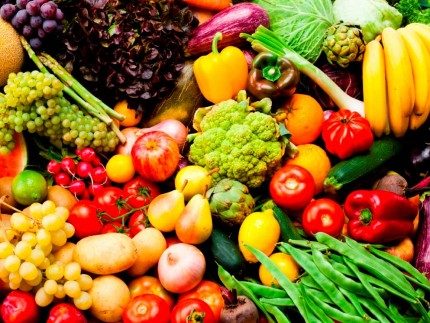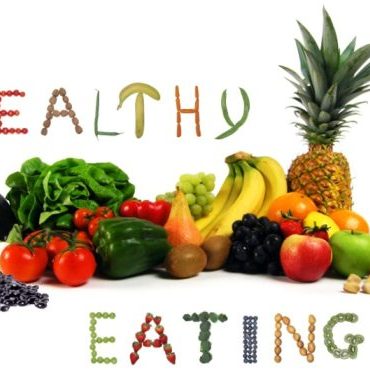1,254
 Our Resident Nutritionist keeping us up to date on all Health Related questions
Our Resident Nutritionist keeping us up to date on all Health Related questions
When you get to your goal weight, your body doesn’t always accept it, often regaining at least 5kg. Why?
Your weight naturally sees-saws from day to day depending on what you have eaten, how well hydrated you are, and whether it is that time of the month. As a result, you will probably be unable to maintain a specific weight all the time. If you have been following a fairly restrictive diet to reach a goal weight, returning to a more relaxed way of eating can see the weight creep back on. If you restrict carbohydrates as part of a weight-loss strategy, you will lose fat. However, when you are short on carbs, you also store less water, so you appear to weigh less on the scales. A few weeks after you have reached your goal weight, you relax a little, eat a bit more starch (albeit healthy types) and regain some weight. Still, you haven’t necessarily gained fat, just water. It is counterproductive to base a weight-loss goal on a specific number of kilos. Scales can create an unhelpful process of self-judgement. It is better to focus on how you feel and on developing your abilities and self-confidence. You need to eat and exercise in a sustainable way so you can stay at your goal weight for the rest of your life. If you struggle to lose weight consider seeking personalised nutritional advice – the answer is different for everyone.
Does it take long to prepare vegetarian foods?
Vegetarian meals can take time to prepare as they involve chopping, peeling, washing ingredients, and of course shopping. I am a big fan of spending quality time on food and eating. Eating is one of the most important things you do all day long, so for physical, mental and spiritual health, it is vital to spend time and thought on each part of the process from selecting ingredients and recipes to preparing your food, to enjoying your meals to their fullest. But I also know that sometimes weeknights can be hectic and you want to have some recipes handy that are healthy and delicious but that come together in a hurry when needed. So here is a great vegetarian meal that can be made in 30 minutes or less.
Chickpeas simmered in masala sauce
The most time you’ll spend on this is just waiting for it to simmer. Preparation of ingredients includes just chopping onions and tomatoes. The rest of the time you’re letting spices meld in the pan, stirring every so often, and of course, steaming the rice. In about 30 minutes, you have an incredibly flavourful meal.
3 tbsp olive or canola oil
3/4 tsp whole cumin seeds
1 cup finely chopped onions
1 tsp finely grated peeled fresh ginger
3/4 tsp ground coriander
1/4 – 1/2 tsp cayenne pepper
1/4 tsp ground turmeric
1 cup finely chopped tomatoes
1 tsp salt
2 1/2 cups cooked, drained chickpeas
1/2 tsp garam masala
1 tsp lemon juice
1. Pour the oil into a frying pan and set over medium heat. When hot, put in the cumin seeds.
After 10 seconds, put in the onions. Stir and fry until the onions turn brown at the edges.
2. Add the ginger and stir once. Add the coriander, cayenne, and turmeric and stir once. Put in the tomatoes and stir for a minute. Now add 1 cup water and the salt. Bring to a boil. Cover and turn heat to low, and simmer for 10 minutes.
3. Add the chickpeas. Bring to a boil. Cover, turn heat to low and cook for 15 minutes. Add the garam masala and lemon juice. Stir and cook, uncovered, on low heat, another 5 minutes.
4. Serve over rice or with naan.
What are the different types of sugars?
Sugar! Without it there would be no chocolate, no cakes and no diversion from the afternoon meltdown. Sugar is a wondrous ingredient that can be used in countless ways. But sugar is not without its mysteries. To understand sugar’s role in cooking it helps to take a small detour into science so we can break it down into its basic parts. Sugars are the simplest form of carbohydrates, also known as saccharides. Sugars can be monosaccharides (meaning a single sugar molecule) and disaccharides (double), which are simply two monosaccharides bonded together. Our body actually breaks down almost everything we eat into these sugars, which are then combined to form more complex carbohydrates like starch.
Monosaccharides are simple sugars, meaning they have only three to seven carbon atoms arranged in either a chain or ring structure. The ‘mono’ stands for one and signifies that monosaccharides only have one ring. Two kinds of monosaccharides include glucose and fructose. Glucose is the most important monosaccharide in nature; it is the main source of energy for body cells and is present in most sweet fruits, as well as in your blood. Fructose is the sweetest monosaccharide, present in fruits and honey.
Disaccharides are two simple sugars linked together in a double ring. Your body must break down disaccharides, just like any carbohydrate other than monosaccharides, before you can get energy from them. Maltose is a disaccharide. It consists of two glucose molecules, while sucrose consists of glucose and fructose. Polysaccharides are large chains of simple sugars, consisting of many monosaccharides. Examples of polysaccharides include starch and glycogen, both of which consist of hundreds of glucose units and different types of bonds holding them together. Polysaccharides serve two main functions: storing energy that your body can use when the external food supply is low and providing structural support and protection.
I have reached a weight-loss plateau. What now?
It is extremely frustrating when the scales won’t shift, but it is important to realise how common this is. A plateau can be triggered by a variety of causes, so the solution varies accordingly. I suggest the following strategies:
Recheck your portion sizes. What are you actually eating? Over time, portion sizes can easily (almost imperceptibly) creep up. Keep a food diary for a week or so. You could be having extras without even realising.
Tweak your diet throughout the day. This may mean having a slightly smaller bowl of cereal, thinner slices of bread, half a cup of rice instead of three quarters, and so on. Little changes quickly add up to make a big difference.
Mix up your routine. Varying your diet and exercise habits can have a positive effect. The body becomes accustomed to the same physical activity, so you need to constantly challenge yourself: Work out with more intensity, lift heavier weights or try some new moves that push you a little harder.
Consider other lifestyle factors. Are you sleeping well? Are you stressed? Are you living on coffee or other stimulants? You need to think about your plateau from a holistic point of view, as you may need to not only eat a little less but also look after yourself in general.
My motivation to lose weight lasts for only six weeks. Why? How can I make it last?
When you go on a diet, the word ‘diet’ itself implies that, at some stage, you will go off that diet. To lose weight and keep it off, it is important to make sensible changes to both the way you eat and your physical activity levels.
Setting achievable short- and long-term goals is a great way to stay motivated; just don’t put unrealistic pressure on yourself. Make your aims specific and measurable; take a homemade lunch to work three times a week, for example, or limit takeaway to once a week. If you have a significant amount of weight to lose, you will want to stay focused, so break your goals down into mini-milestones. You could also write down your reasons for wanting to drop kilos. This is an effective tactic because when your motivation wobbles and temptation calls, you will have tangible reasons to remind you and help you reflect on your reasons for losing weight.
Writing a list of weight loss pros and cons can be helpful as most of the time the advantages of eating healthily and losing weight far outweigh the disadvantages. Sharing your goals with friends and family is another way to stay on track, as they can help hold you accountable.
Sometimes all the incentive you need to keep going is a little positive reinforcement. It can be really encouraging when a family member or a friend comments on how much happier and healthier you look since making better lifestyle choices!

